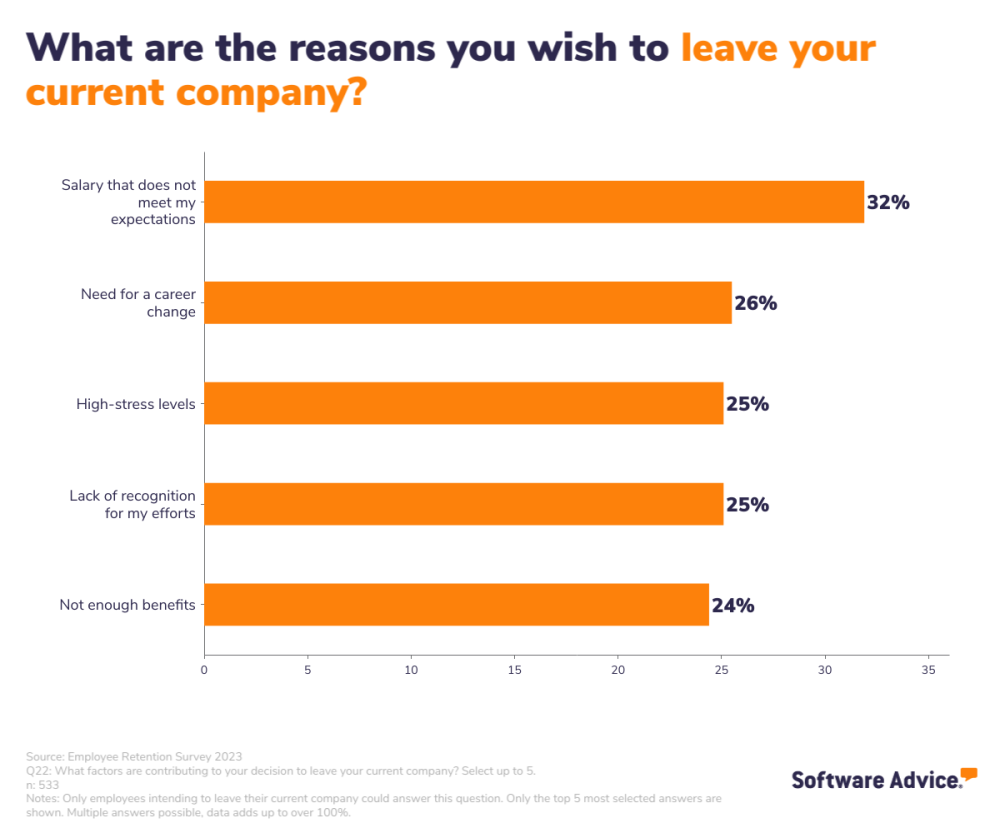A study* reveals that currently, 44% of Brits feel satisfied in their present role, and only a combined 14% feel unhappy overall. Yet despite the positive rate of job satisfaction, more employees are looking to leave their positions than remain, as 28% want to quit their jobs in the next year.

Most employees want to leave their current role because their salary doesn’t meet expectations (32%), followed by the need for a career change (26%). Meanwhile, 25% claim their job is causing high stress levels and another 25% feel they are not receiving enough recognition.
Of the 43% that plan on staying in their existing role, most want to remain due to the good work-life balance it provides (52%). Interestingly, 4 out of the 5 most popular reasons workers gave for staying in their jobs were due to well-being or flexibility.
Whilst the majority of employees changed jobs 1 to 2 times in the past 5 years, 7% changed 3 to 5 times or more. The reason 7% of respondents changed their roles so many times is because:
- They were looking to pursue higher salaries (39%);
- They desired more flexibility (39%);
- They wanted to move to a company which was more in line with their values (28%);
- Due to external circumstances such as redundancies (28%).
Factors that lead to happiness in the workplace
The three aspects voted by employees that contribute to happiness in the workplace include maintaining a balanced work-life balance (47%), healthy relationships with coworkers (45%) and a salary that meets expectations (39%). By contrast, the main causes of unhappiness in the workplace are high-stress levels (44%), a salary that doesn’t meet expectations (36%) and a lack of recognition for hard work (35%).
55% of employees believe that a good manager supports them by acknowledging their hard work and effort as well as promoting a collaborative work environment and inspiring positivity (45%). Yet a deficient manager is defined as someone who does not recognise their employees for their hard work (48%) and is unable to create a positive work environment (40%).
David Jani, Content Analyst at Software Advice UK, comments:
Our findings show that whilst there are many factors to keep employees happy most of our sample are frequent job changers. However, our results demonstrated that the strongest tools for keeping staff for the longest term involve offering reasonable salaries, maintaining a focus on professional development and growth, as well as an emphasis on employee welfare.
On the other hand, workplaces where employees experience higher stress, are not recognised for their efforts and are unhappy with their salaries appear to be more likely to look for alternative employers. The overall picture for job retention in the UK is complex as workers’ needs vary amongst our sample. Yet, whilst a certain amount of job changing amongst SME employees should always be priced in, there are plenty of ways managers can at least in the medium term give staff good reasons to stay put.
*Survey from Software Advice







